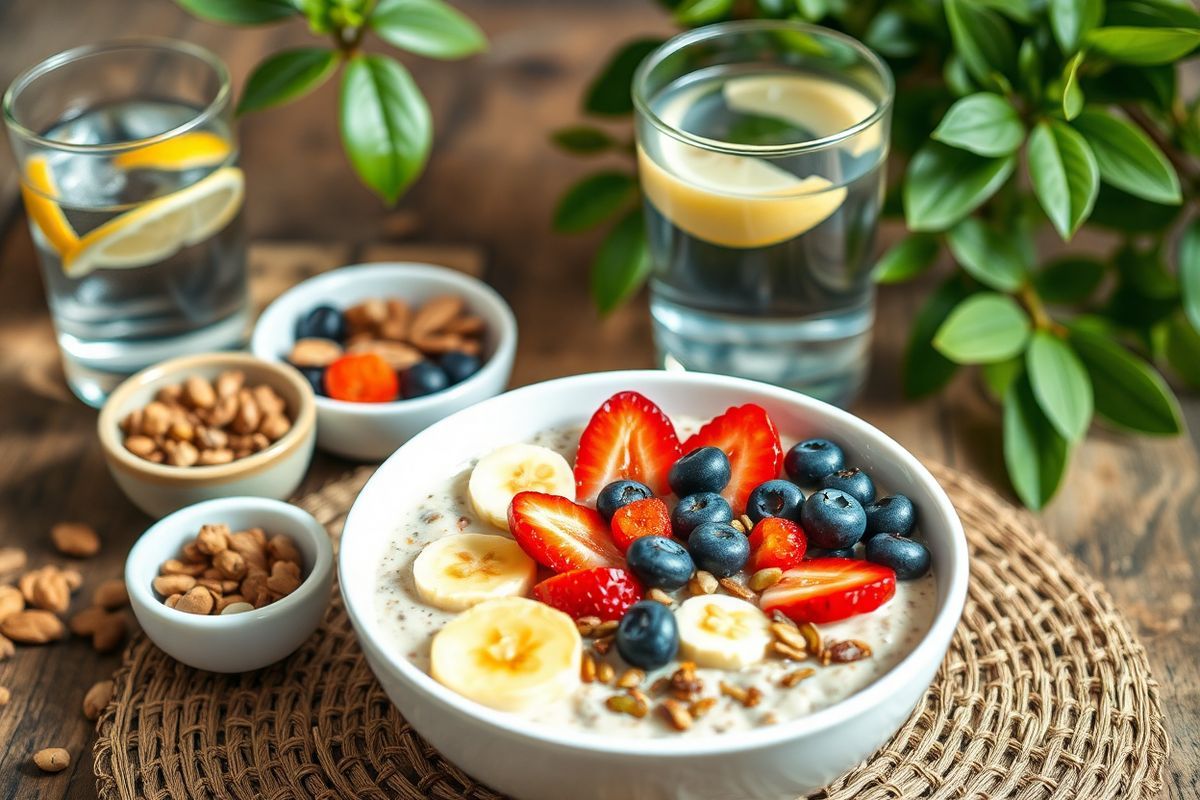Table of Contents
Understanding Lactose Intolerance: Causes and Symptoms

Lactose intolerance is a condition resulting from the body’s inability to digest lactose, a sugar found in milk and dairy products. This digestive issue occurs when the small intestine does not produce enough of the enzyme lactase, which is necessary to break down lactose into glucose and galactose for absorption. The severity of lactose intolerance can vary significantly among individuals, with some able to tolerate small amounts of lactose without significant symptoms, while others may experience severe digestive discomfort even with minimal intake.
The most common symptoms of lactose intolerance include:
- Abdominal pain
- Bloating
- Diarrhea
- Flatulence
These symptoms typically manifest within a few hours after consuming lactose-containing foods. It is worth noting that lactose intolerance is more prevalent among certain ethnic groups; for instance, it is common in many individuals from Asian, African, and Mediterranean descents, while it is relatively rare among those of Northern European ancestry (Better Health, 2023).
Causes of Lactose Intolerance
The primary cause of lactose intolerance is genetic predisposition, where a person’s genetic makeup results in a lower production of lactase. Secondary lactose intolerance can occur due to damage to the small intestine, often from infections, such as gastroenteritis, or medical conditions like coeliac disease or crohn’s disease (NIDDK, 2023).
Diagnosis
Diagnosing lactose intolerance generally involves a combination of medical history, symptom assessment, and specific tests, such as the hydrogen breath test or lactose tolerance test (Mayo Clinic, 2023).
The Link Between Lactose Intolerance and Digestive Discomfort
The relationship between lactose intolerance and digestive discomfort is primarily due to undigested lactose entering the large intestine, where it interacts with gut bacteria. This leads to fermentation, producing gases that cause bloating and abdominal pain. Furthermore, undigested lactose attracts water into the colon, which may result in diarrhea. Interestingly, the presence of high water content in the stool can also lead to a scenario where some people experience constipation interspersed with episodes of diarrhea, often referred to as “lactose-induced constipation” (Better Health, 2023).
The Impact of Gut Flora
The gut microbiome plays a significant role in an individual’s response to lactose. A healthy and balanced gut flora can sometimes compensate for low lactase levels, allowing for partial lactose digestion. Conversely, an imbalanced gut microbiome may exacerbate symptoms of lactose intolerance, leading to more pronounced digestive issues.
How Constipation Manifests in Individuals with Lactose Intolerance

Constipation is characterized by infrequent bowel movements and difficulty passing stools. Medically, it is defined as having fewer than three bowel movements per week. In individuals with lactose intolerance, constipation can manifest in several ways:
-
Delayed Bowel Movements: The consumption of lactose may lead to a cycle of diarrhea and constipation, where the presence of undigested lactose causes diarrhea, which can subsequently lead to a rebound effect of constipation as the gut becomes irritated.
-
Hard, Dry Stools: When lactose is not adequately digested, it can lead to dehydration of the stool. The presence of undigested lactose can cause the intestines to absorb more water than usual, resulting in harder stools that are difficult to pass (Cleveland Clinic, 2023).
-
Abdominal Discomfort: The bloating and gas associated with lactose intolerance can contribute to feelings of fullness and discomfort, sometimes mimicking or exacerbating the sensation of constipation.
Symptoms of Constipation
The symptoms of constipation include:
- Fewer than three bowel movements per week
- Hard, dry stools
- Straining during bowel movements
- Feeling of incomplete evacuation
- Abdominal pain and bloating
Dietary Adjustments: Managing Lactose Intolerance and Constipation Together
Managing lactose intolerance alongside constipation requires a careful approach to diet. Individuals experiencing both conditions should consider the following dietary strategies:
-
Limit Lactose Intake: Reducing or eliminating lactose-containing foods can alleviate symptoms of both conditions. However, it is important to note that not all dairy products contain the same amount of lactose. Hard cheeses and fermented dairy products like yogurt often have lower lactose levels and may be tolerated better (NIDDK, 2023).
-
Increase Fiber Intake: Incorporating high-fiber foods such as fruits, vegetables, whole grains, and legumes can help prevent constipation. A diet rich in fiber adds bulk to the stool and promotes regular bowel movements. The recommended daily fiber intake is between 20 to 35 grams (Mayo Clinic, 2023).
-
Stay Hydrated: Adequate water intake is essential for softening stools and preventing constipation. Aim for at least 1.5 to 2 quarts of fluid daily, avoiding diuretics like caffeine and alcohol, which can contribute to dehydration (Cleveland Clinic, 2023).
-
Monitor Food Choices: Keeping a food diary can help identify specific foods that trigger symptoms of lactose intolerance and constipation. Foods known to cause constipation include processed products, high-fat foods, and low-fiber diets.
Sample Dietary Plan
| Meal | Foods to Include | Foods to Avoid |
|---|---|---|
| Breakfast | Oatmeal with fruit and nuts | Sugary cereals |
| Lunch | Salad with beans and a vinaigrette | Processed meats |
| Snack | Greek yogurt (if tolerated) or fruit | Chips and cookies |
| Dinner | Grilled chicken with vegetables and quinoa | Heavy creams or cheeses |
Seeking Relief: When to Consult a Healthcare Professional for Lactose Intolerance and Constipation
If dietary changes and over-the-counter remedies do not alleviate symptoms, it is advisable to consult a healthcare professional. This is particularly crucial if any alarm symptoms arise, such as:
- Blood in stool
- Severe abdominal pain
- Unexplained weight loss
- Changes in bowel habits
A healthcare provider can perform a thorough examination, including blood tests and potentially imaging studies, to rule out underlying conditions that may be contributing to both lactose intolerance and constipation (Mayo Clinic, 2023).
Treatment Options
Treatment for lactose intolerance often includes enzyme supplements like lactase, which can help digest lactose when taken before consuming dairy products. For constipation, treatment may involve fiber supplements, stool softeners, and in some cases, prescription medications that promote bowel movements (Cleveland Clinic, 2023).
FAQ
What should I do if I suspect I have lactose intolerance?
Start by keeping a food diary to track your symptoms and identify potential triggers. Consider trying lactose-free products and consult with a healthcare provider for testing and dietary guidance.
Can I still eat dairy if I am lactose intolerant?
Many people with lactose intolerance can tolerate certain dairy products that are lower in lactose, such as hard cheeses and yogurt. It’s essential to monitor your symptoms and adjust your intake accordingly.
How can I manage constipation effectively?
Increasing fiber intake, staying hydrated, and maintaining regular physical activity are key strategies. If constipation persists, consult a healthcare provider for further evaluation and treatment options.
Are there any natural remedies for lactose intolerance?
Some individuals find relief using lactase enzyme supplements, which can help them digest lactose when taken before consuming dairy. Probiotics may also support digestive health.
When should I seek medical attention for constipation?
Seek medical attention if you experience severe abdominal pain, blood in your stool, unexplained weight loss, or if constipation persists despite dietary changes and over-the-counter treatments.
References
- Better Health. (2023). Lactose intolerance. https://www.betterhealth.vic.gov.au/health/conditionsandtreatments/lactose-intolerance
- NIDDK. (2023). Definition & Facts for Lactose Intolerance. https://www.niddk.nih.gov/health-information/digestive-diseases/lactose-intolerance/definition-facts
- Mayo Clinic. (2023). Diagnosis & treatment. https://www.mayoclinic.org/diseases-conditions/lactose-intolerance/diagnosis-treatment/drc-20374238
- Cleveland Clinic. (2023). constipation. https://my.clevelandclinic.org/health/diseases/4059-constipation









